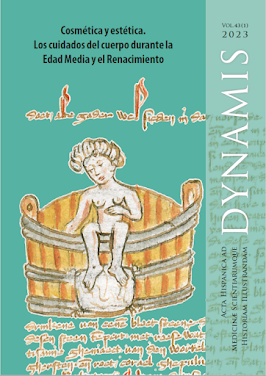DYNAMIS: VOLUMEN 43 (1) 2023

DOSSIER: Cosmética y estética. Los cuidados del cuerpo durante la Edad Media y el Renacimiento. Editado por Ricardo Córdoba de la Llave y Javier López Ryder El cuidado del cuerpo en la Edad Media y el Renacimiento: entre la cosmética y la salud. Ricardo Córdoba de la Llave y Javier López Rider Recetario médico-farmacológico para el cuidado y el embellecimiento del cabello: fuentes árabes medievales. Ana María Cabo González Entre la estética y la medicina: el cuidado del cuerpo en el Breviarium de Johannes de Sancto Paulo. Victoria Recio Muñoz En pos de la belleza. Cuidado de rostro y cabellos en los recetarios hebreos medievales. Meritxell Blasco Orellana y Carmen Caballero Navas Higiene y cuidado dental en recetarios hispanos de la época medieval y moderna. Ricardo Córdoba de la Llave Medicina y masculinidad: el cuidado de la barba en los recetarios domésticos castellanos del siglo XVI. Montserrat Cabré i Pairet y Javier López Rider "[...] ad agritudinem ...